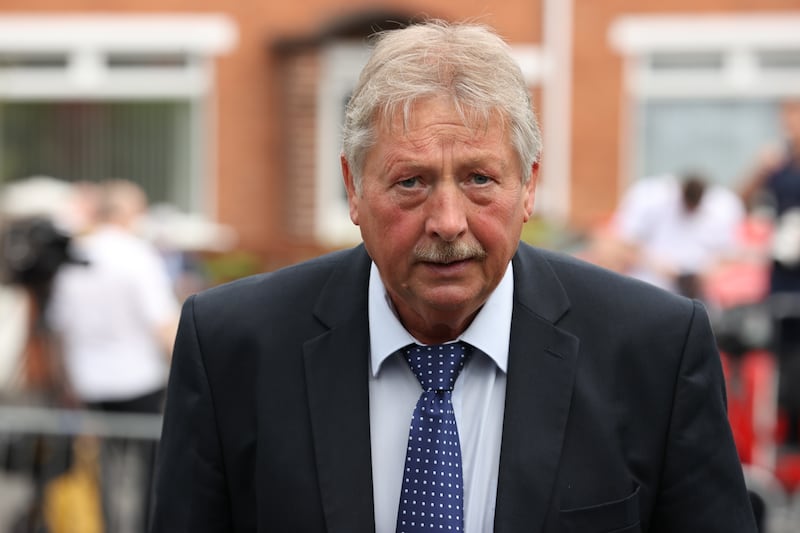The DUP is no stranger to explosive controversies but arguably none has emerged at such a sensitive time in the political process. It’s two months since the Safeguarding the Union command paper, the fruits of almost a year’s negotiations between the British government and the DUP, led to the restoration of the institutions. Then there’s expected to be a general election in a matter of months.
The weeks since Stormont returned have been largely positive in terms of stabilising power-sharing. Relations between Sinn Féin and the DUP are as healthy, ostensibly at least, than they have ever been.
Sir Jeffrey Donaldson took personal responsibility for selling that deal to his party but in the weeks following stepped back, leaving its implementation to his assembly team. He had seemingly done the heavy lifting and was happy to leave his MLAs to it, quietly hoping significant opposition would dissipate. Ordinarily, the Lagan Valley MP would be starting to focus on the forthcoming Westminster election campaign and the defence of a seat that is vulnerable.

But the events that have unfolded over the past 24 hours have thrown everything up in the air. There are undoubtedly implications at constituency level, including the strong possibility of a by-election, but the party leader’s resignation and the associated allegations could also have ramifications for the institutions.
The DUP’s executive partners are unlikely to seek any political advantage from what has emerged. Already First Minister Michelle O’Neill has signaled that her priority is keeping the executive on track.
There is no doubt, however, that this controversy is a huge blow to the DUP and makes it especially susceptible to attacks from those opposed to the so-call Donaldson Deal. The questions being raised about the former DUP leader’s credibility have been deliberately extended to the agreement he secured from the British government. Some of the theories are outlandish and conspiratorial but it must be acknowledged that this episode weakens the DUP at a time when it is facing a significant electoral challenge.
The consensus is that the TUV-Reform UK link-up won’t secure any seats in the north but it may split the unionist vote to the extent that DUP seats are lost – interim leader Gavin Robinson’s East Belfast seat being among the most exposed.
However, while the instinct is to believe the internal DUP faction opposed to the deal will see this an opportunity to score points, they will also be aware that public agitation will damage the party’s brand. Recent social media exchanges between Sammy Wilson and Ben Habib suggest that while both share deep unease with the Donaldson Deal, there’s little love lost between the two.
Expect the DUP wagons to be circled in the immediate future but that doesn’t mean the likes of Dodds, Wilson, Paisley and their allies in the assembly won’t seek to assert their authority when it comes to electing a new leader.









